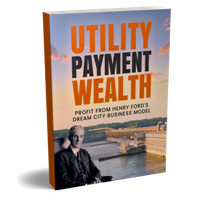Sometime in early 1848 French poet Alphonse de Lamartine had a change of appetite. For whatever reason, he no longer took to gobbling up frog legs but to gobbling up the new, forward thinking, ideas of the day.
It all seemed so interesting, exciting, and enlightening at first. Yet the more he indulged, the more he went mad.
It was as if Lamartine had been bitten by a rabies sick dog. In a sense, he had been. Yet the sick dog was not a French poodle…but that of the gospel of Karl Marx.
This was little cause for alarm to most. For all Frenchmen were foaming at the mouth at the time. Again, for the second time in 50-years, they’d gone a little crazy and heaved their leaders into a ditch.
Both times an economic backslide provoked the hubbub. Moreover, both times the makings of man made a great mess of things.
Redistributed Poverty
With King Louis Philippe thrown out on his backside Lamartine and a bunch of provisional government know-it-alls began ruling the land. They laid down diktats and decrees of Marx to punish the evil rich, abolish poverty, and spread the wealth to those who didn’t earn it.
Yet to their disbelief and dismay the delusional visions of Marx didn’t bring about the Garden of Eden. They brought about the hell of redistributed poverty. Before the government wizards knew it something quite terrible had happened. Everyone was not equally rich; they were equally poor.
Frederic Bastiat, another Frenchman, captured the folly of the experiment with commonsense and wisdom…
“Here I encounter the most popular fallacy of our times. It is not considered sufficient that the law should be just; it must be philanthropic. Nor is it sufficient that the law should guarantee to every citizen free and inoffensive use of faculties for physical, intellectual, and moral self-improvement. Instead, it is demanded that the law should directly extend welfare, education, and morality throughout the nation.”
In the end, our tragic antagonist Lamartine got just what he deserved. He lived out his golden years in poverty, on the French Government dole, basking in the glories of redistributed poverty.
Change We Can Believe In: Soak the Rich
About that time, French critic Jean-Baptiste Alphonse Karr, as an epigram to the January 1849 issue of his journal Les Guêpes (“The Wasps”), wrote the following…
“plus ça change, plus c’est la même chose”
In English this translates to, “The more things change, the more they stay the same.” Perhaps what Alphonse Karr was getting at is the notion that events or occurrences that appear to bring about dramatic changes, in effect, only serve to further the status quo.
These days, where money and politics are concerned, things couldn’t be changing to stay the same any more perfectly than they are. The European Monetary Union is nearing the end of its countdown to breakup. Yet, when the breakup occurs will it result in more decentralized control? Or will it be the impetus for a much larger power grab and greater authoritarian rule?
Looking to the experience of the last 100-years as a guide, our guess is it will be the latter.
Likewise, here in the United States, each bout of economic and financial turbulence escalates the heavy hand of government intervention. Even after the great hullabaloo over the summer to raise the debt ceiling, nothing much has really happened in the way of real change. Moreover, what’s happened is more of the same.
Just last week, for example, President Obama unveiled his latest scheme to soak the rich. From what we gather it contains a slew of tax increases, including the “Buffett rule” to raise capital gains taxes. Of course, there is no mention that no one makes as much money as Warren Buffett. However, there’s an insistence on raising marginal rates on couples making $250,000 or more annually.
“Change We Can Believe In,” campaigned Obama in the 2008 election.
No doubt, the change he offers is the same sort of change offered up in France 163 years ago. Where, starting out with the premise that the filthy rich are villains and should be soaked, the wizards easily move to the premise that any person who earns anything above a wage salary whatsoever is a villain too, and should be soaked equally.
We will all be foaming at the mouth before they are through.
Sincerely,
MN Gordon
for Economic Prism
Return from Change We Can Believe In: Soak the Rich to Economic Prism





Something that is absolutely absurd to me is how low income people in some cases beef about the fact that rich people have more money than they do. There are differences between wealthy people who claim that they don’t pay enough in taxes and people who are not wealthy, however, claim that the wealthy don’t pay enough in taxes. As far as a flat tax goes, a proportional system is better. Even if you pay according to your ability, wealthy people will still pay more.